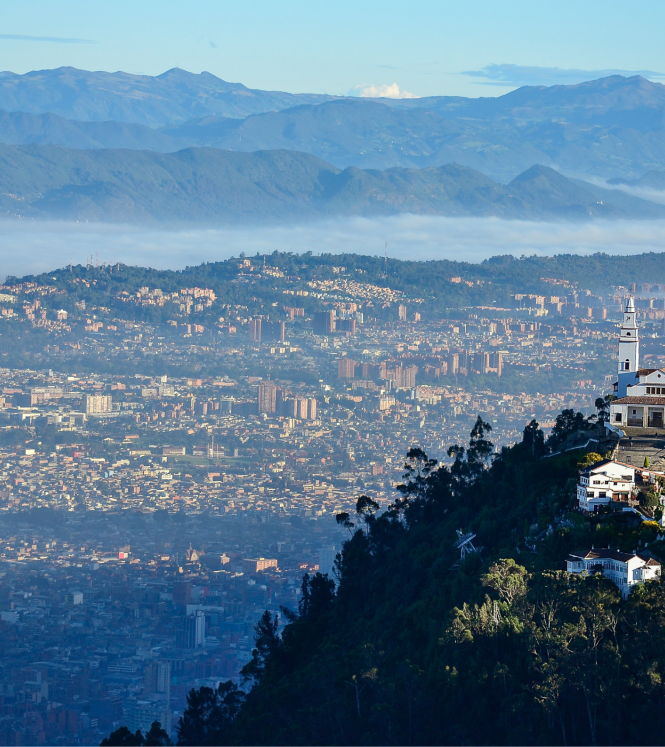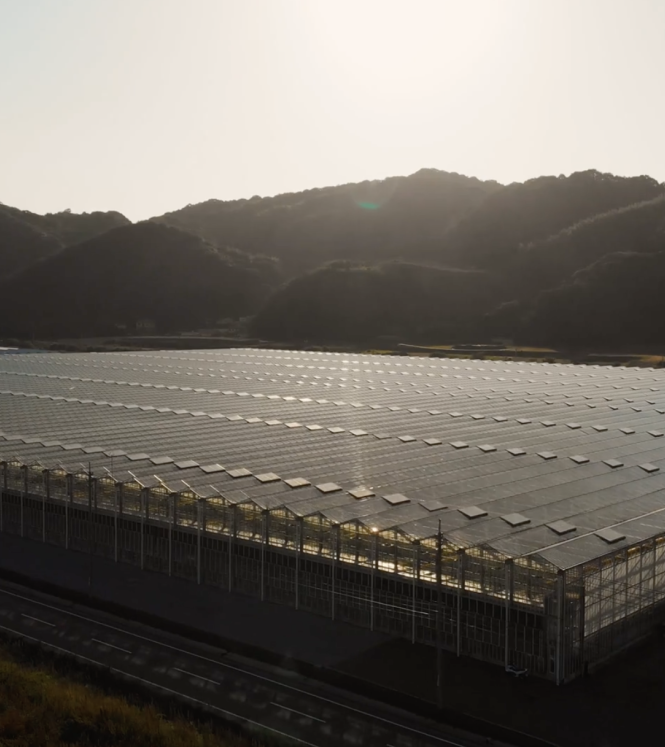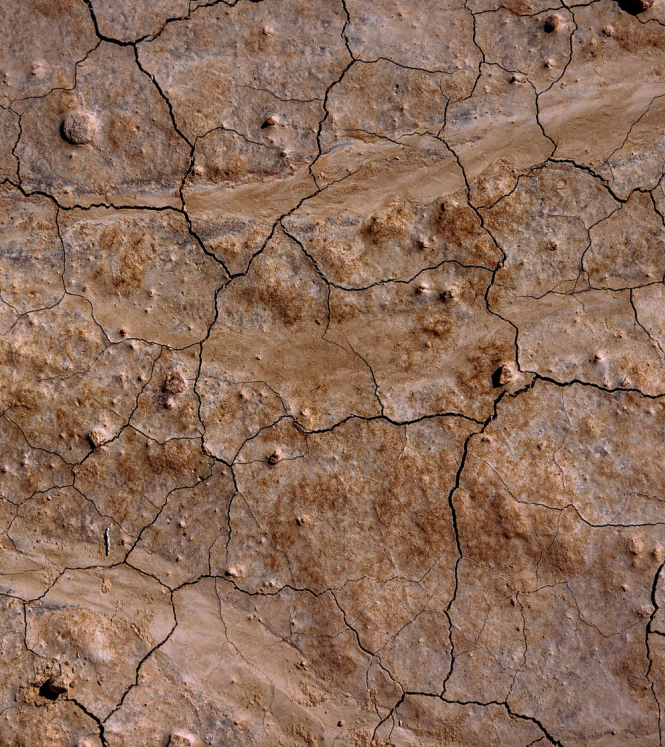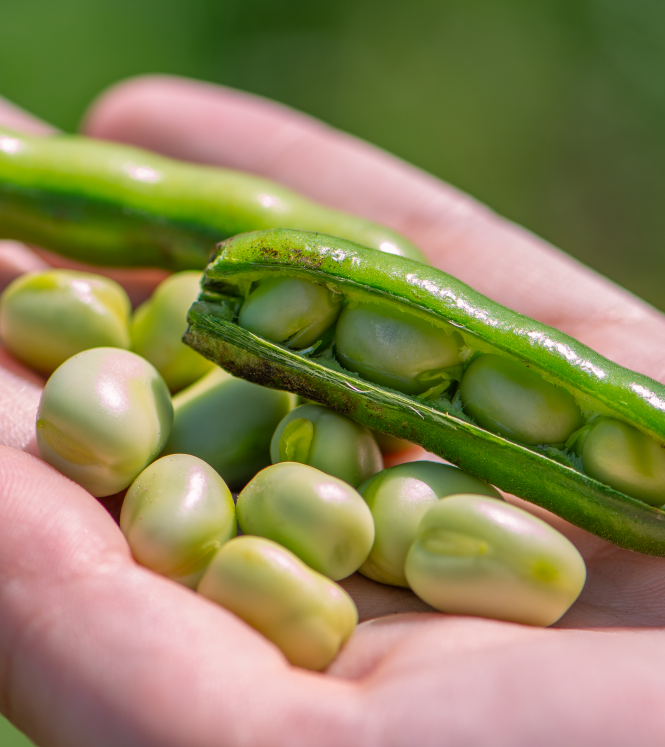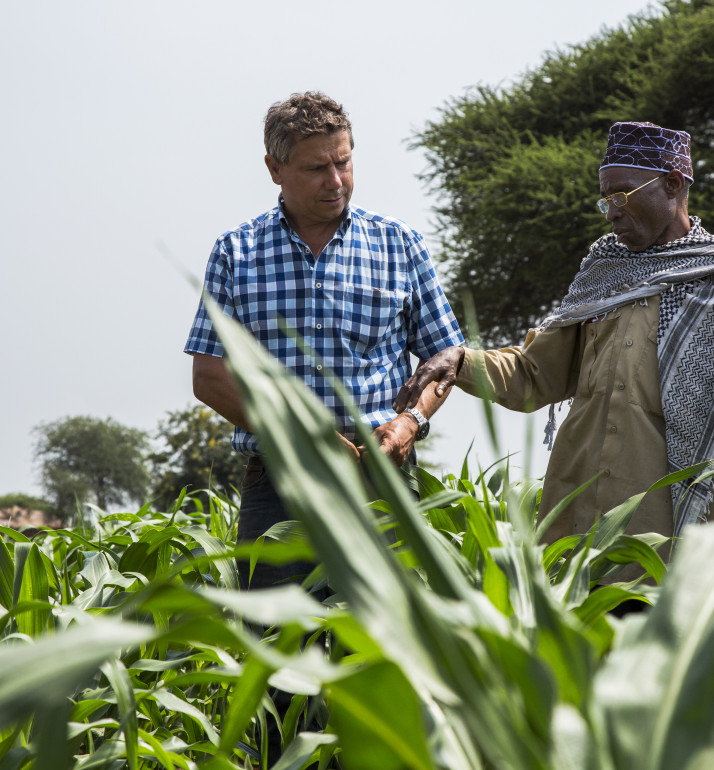
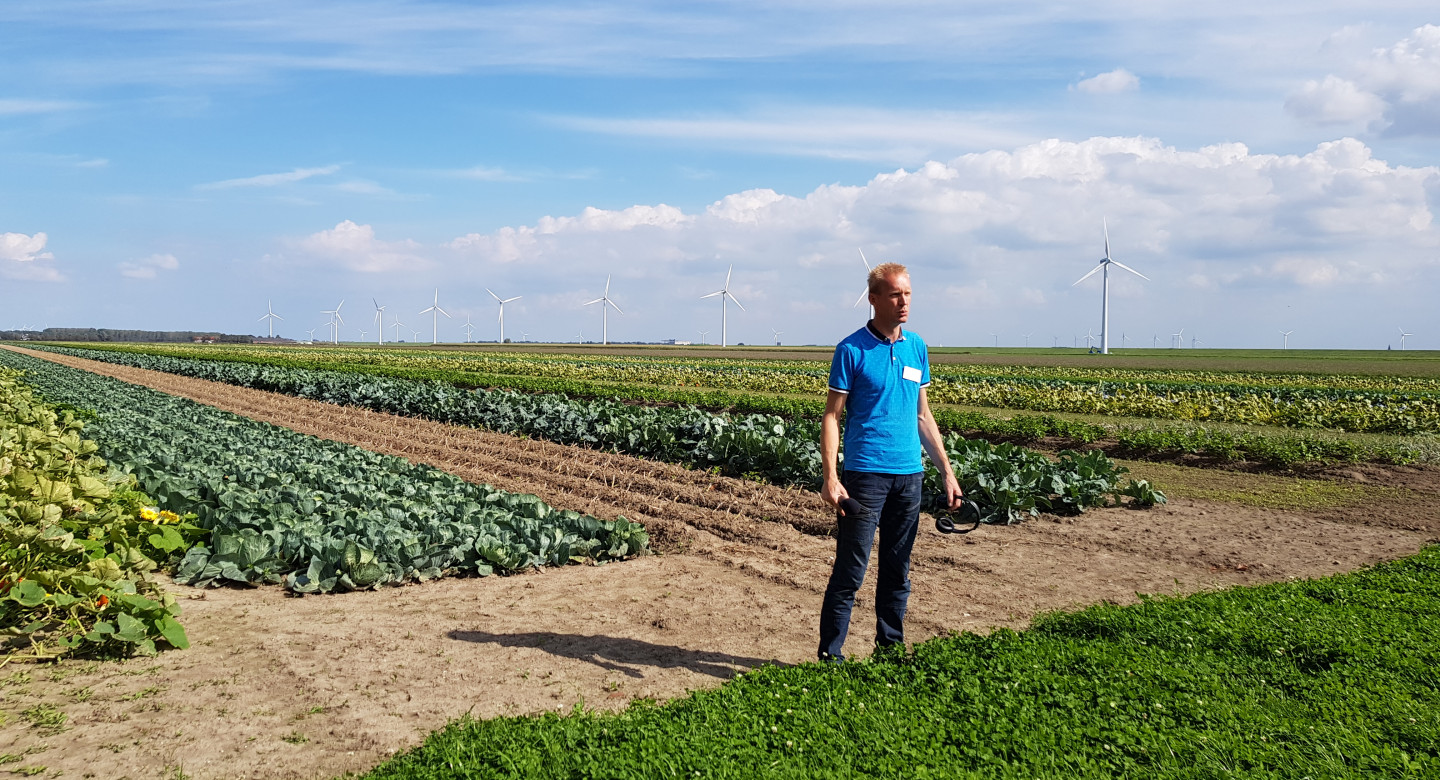
Profitable business models for carbon farming
Trees and plants are the earth’s green lungs. They take CO2 from the air and release oxygen in return. The European Carbon Farming project aims to take advantage of this natural process by experimenting with carbon sequestration techniques in agricultural areas. By storing CO2 in the soil, farmers not only improve their own soil, they also help to mitigate climate change – a service other companies are willing to pay for. The Carbon Farming pilot projects connect farmers to partners seeking solutions for their climate goals. By sharing the cost of investment, everybody wins.
Carbon sequestration contributes to healthier climates, more sustainable soil and water management, biodiversity, greener food supply chains and increased resilience against climate extremes. However, these techniques require additional investments, for example for new machinery or more or different crops. The European Carbon Farming pilot projects reward farmers for implementing carbon sequestration techniques.
Allowing nature to restore itself
A pilot, the Wind park Krammer project, is currently being executed in the province of Zeeland in the Netherlands. In the next five years, 15 Dutch farmers, guided by carbon farming experts, will test various carbon sequestration measures in an area covering 617 hectares. Together, they aim to sequestrate as much as 2,750 tonnes of CO2 during the project. That is the equivalent of over 2,000 return flights from Amsterdam to New York.
To achieve optimal results, the carbon farming experts connected to the Netherlands’ Southern Agriculture and Horticulture Organization (ZLTO), Wageningen University & Research (WUR) and the Louis Bolk Institute working on the pilot project have chosen a mixture of above and underground techniques. These include cover crops, no tillage, crops with deep roots, manure, and good pasture management. All these techniques simply allow nature to restore itself. By stimulating plants and crops to convert CO2 from the air into biomass, they bind carbon to the Zeelandic soil, making it more resilient to climate extremes in the future.
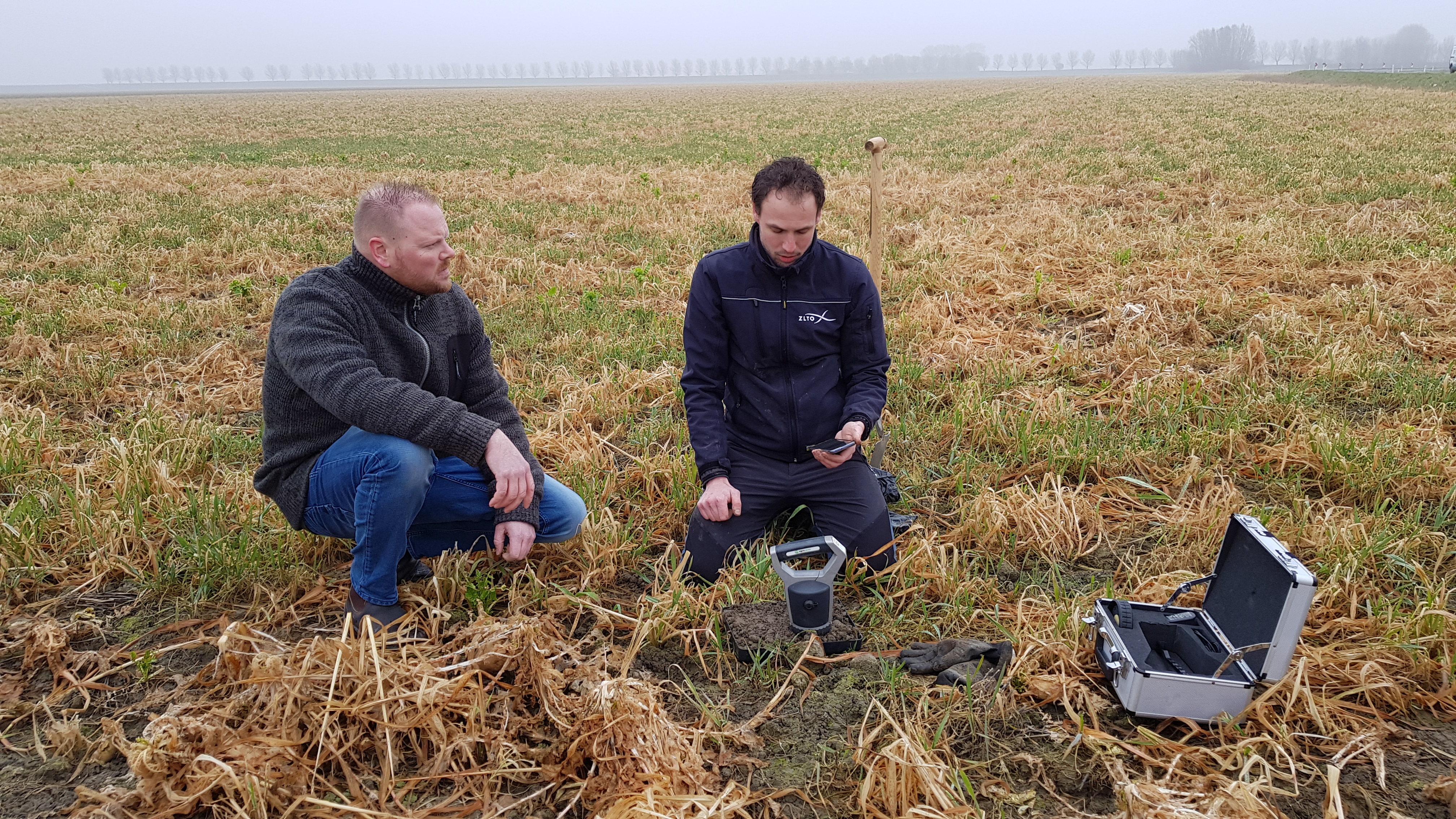
Creating a local CO2 cycle
The farmers taking part in the pilot are paid for their contribution to combatting global warming by the owners of Wind park Krammer, Zeeuwind and Deltawind. On their way to becoming climate-neutral or even climate-positive, companies can choose to compensate for their CO2 emissions. And although this is often done further afield, the Wind park Krammer project shows that companies can do so locally, in the same environment they impact directly with their business activities. And locally here really means locally. All participating farmers can see Wind park Krammer from their land.
Zeeuwind director Teus Baars explains their motivations for taking part in the project: “For Zeeuwind it is important to connect the energy transition to a broader social agenda, like circular agriculture. It’s great that we are able to use a share of Wind park Krammer’s revenues to work with agriculturists towards creating a local CO2 cycle.”
“It’s great that we are able to use a share of our revenues to work with agriculturists towards creating a local CO2 cycle”
The future of carbon farming
Carbon farmers deliver an important service to society, and the financial payment reflects that. “The farmers in our projects who have started working with carbon farming do not do so for the financial rewards. They do so because they believe in the need for more sustainable soil management and know that carbon farming is also beneficial to their land. They are mainly interested in gaining knowledge so that they can still be farmers in 30 years’ time. They mainly see the for this important social service as recognition for their contribution,” says project lead Marjon Krol (ZLTO). However, the financial incentive could persuade other farmers to join a carbon farming initiative.
Restoring nature can be a profitable business model. The Wind park Krammer pilot project is well underway, and participating farmers have already received their very first financial payment for their contribution. Just across the border from Zeeland, in the town of Bergen op Zoom a similar initiative has been set up by kitchen factory DKG Keukens, with 2 more farmers. And in neighbouring Belgium, CO2 platform Claire was created to match local farmers to local companies in an attempt to reach local climate neutrality.
All recommendations from the Wind park Krammer project are shared with the Netherlands Ministry of Agriculture, Nature and Food Quality as well as the European Commission. The EU is well aware of the great potential of carbon farming. As part of the common agricultural policy (CAP), carbon farming was also included in the climate strategy recently presented by Frans Timmermans, Vice-President of the European Commission. We have a collective carbon debt, and carbon farming can help us not only become climate-neutral, but could also make up for historic emissions later on.
In the meantime, national and international organisations are looking to address the next challenge – how can we use data and technology to scale carbon farming? Models can help us make more accurate projections, while satellites and remote sensing can support us to monitor the results of our efforts.
In a country well-known for intensive agriculture, carbon farming is a natural and sustainable solution to keep our soil productive in the long run. And maybe one day, all farmers can be carbon farmers. “Our dream is to regard potato farmers, union farmers, pear growers and dairy farmers as carbon farmers”, says ZLTO board member Joris Baecke. “By sequestrating more carbon into the soil, they work towards climate goals, the resilience of their soil, and the strengthening of the company’s earning potential.”
“Our dream is to regard potato farmers, union farmers, pear growers and dairy farmers as carbon farmers”
The European Carbon Farming project unites seven knowledge institutes and farmers organisations from Norway, Germany, Belgium and the Netherlands. Dutch participants are farmers’ association ZLTO and Bionext, a chain organisation for organic food and farming. In December 2021, the European Carbon Farming project concludes with a two-day conference ‘Incentivising Carbon Farming’.

